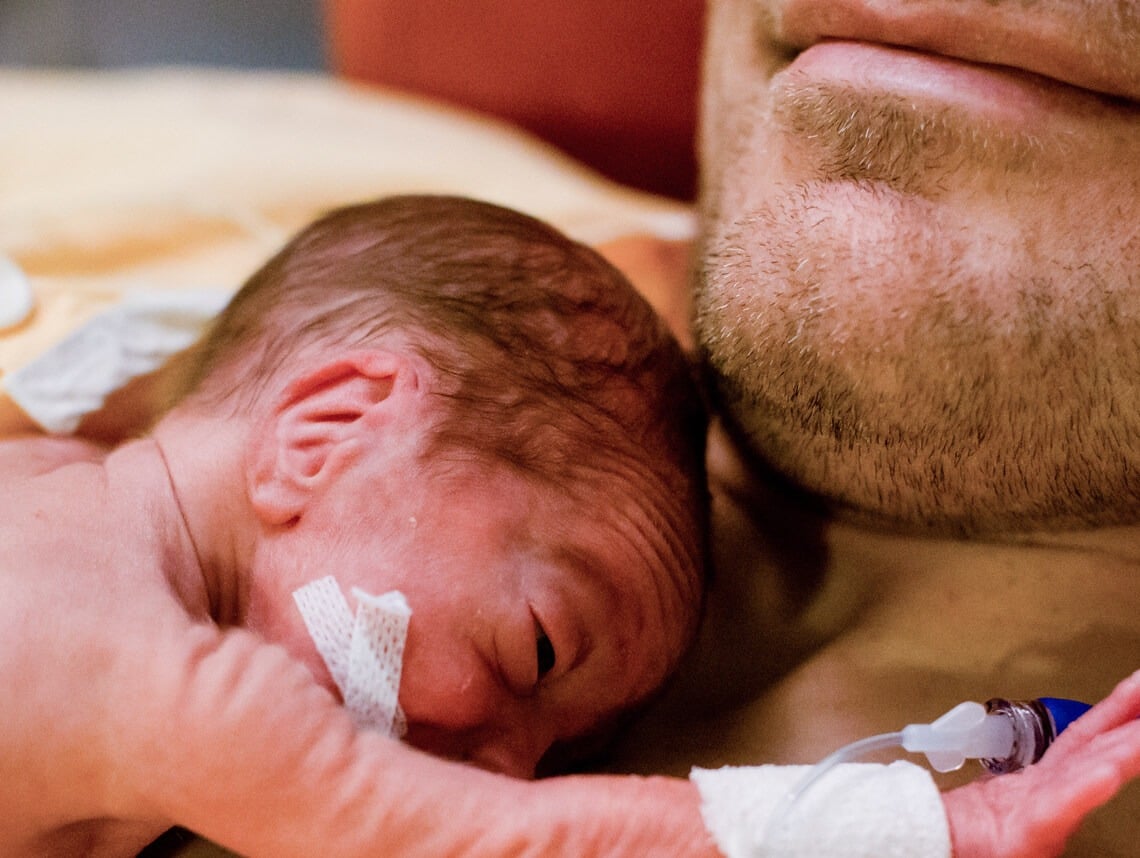
Finding out you’re pregnant comes with many emotions. Whether it’s a surprise or planned, you soon become emotionally attached to the well-being of your baby. You plan on how to decorate their room, make a list of names, and imagine what life will be like once your little one arrives. But, what happens if your baby is born prematurely? How can you best care for them, whether they’re a micro-preemie or a preemie? And, what are the effects of being born too soon on their long-term health?
What is a preemie?
Generally, a pregnancy is considered to be full term at around 40 weeks of gestation. The term preemie is short for premature, and it refers to any baby born at least three weeks before their estimated due date. The earlier a baby is born, the higher the risk of complicated medical issues. Even if a medical provider predicts that a baby might be born prematurely, they attempt to extend the pregnancy as much as possible — since every single day that the pregnancy can be extended will increase the baby’s chance of avoiding health complications.
If a baby is born between 34 and 36 weeks of gestation, they are considered to be late preterm. Babies born between 32 and 34 weeks of pregnancy are considered to be moderately preterm, and babies born between 26 and 34 weeks of gestation are very preterm. Most preemies are born as late preterm babies.
Depending on how early the baby is born, they may need to stay in the neonatal intensive care unit (NICU). Typical problems preemies have when they are born include:
- Breathing difficulties — which could result in respiratory distress
- Not being able to generate enough body heat — which could lead to hypothermia
- Immune system problems — due to an underdeveloped immune system
What is a micro-preemie?
A micro-preemie is a term that refers to a baby who is born before 26 weeks of gestation. Due to their significantly early arrival, they stay in the neonatal intensive care unit (NICU) — sometimes for several months. Although it is possible for a micro-preemie to go on to have a normal, healthy life, some do experience severe, long-term health problems.
Micro-preemie babies are very fragile and their skin is so thin that most of their veins are visible. Some of them may even look gelatinous. Survival rates vary greatly depending on how early the baby was born. When visiting the baby at the NICU, you will notice the following equipment:
- Respiratory support
- Intravenous lines
- Nasogastric/Orogastric tubes
- Endotracheal tubes
- Machinery to monitor their blood pressure
- Machinery to monitor the oxygen levels in their blood
Micro-preemies are also prone to infections and often need antibiotics. In addition, they have fragile blood vessels, which could rupture easily. Although this can resolve on its own while staying in the NICU, some babies may need to undergo surgery to drain extra fluid. Adding to the long list of concerns, since micro-preemies are born with immature organs, they are susceptible to heart problems — particularly patent ductus arteriosus (PDA) — and necrotizing enterocolitis (bowel tissue dying).
Caring for a Premature Baby
Once your baby is released from the neonatal intensive care unit, there are several things you can do at home to keep them safe.
1. Have your baby sleep on their back
Premature babies will sleep a lot more than babies who were born around their due date. Let them sleep as much as possible, and always place them on their back to reduce the risk of sudden infant death syndrome (SIDS).
2. Prioritize skin-to-skin contact
To do this, dress your baby only in their diaper and a hat, then place your baby on your bare chest, with their head turned to one side so that it rests directly above your heart. Then place a blanket over the baby’s back for warmth. This is known as kangaroo care, and has been proven to increase the bond with your baby as well as stabilize their heart rate, improve their breathing pattern and oxygen saturation levels in their body, and increase your breast milk supply.
3. Limit visits
While it’s understandable that your entire family will want to meet the baby, now is not the time. Follow the doctor’s instructions regarding this timeframe and strictly adhere to them.
4. Avoid public outings
Take your baby out of your house for medical appointments. By the same token, when going to the doctor, ask to wait in an examining room instead of in the waiting room with the rest of the visitors.
5. Take care of yourself as well
The best way to ensure your baby’s health is to also prioritize yours. Taking care of a preemie is emotionally draining and exhausting — which is quite a load to add to recuperating from childbirth. Accept any help that’s offered by loved ones, and talk with your doctor if you’re experiencing anger, anxiety, or postpartum depression so that they can direct you to proper treatment and support.
Contact Care Options for Kids For Pediatric Home Health Care
It can be hard to balance your time between work, home, and caring for a child. That’s why our team of skilled professionals at Care Options for Kids is here to help.
Our home health care services offer support in the comfort of your home. We refer loving and competent nurses to provide customized care for families — from a few hours a day to around-the-clock supervision. Contact us directly to speak with a home health care professional or request a free in-home assessment. Together we can determine the best plan of action to keep your loved ones happy and healthy.
If you are considering pediatric home health care services, contact the caring staff at Care Options for Kids. Call today at (888) 592-5855.
